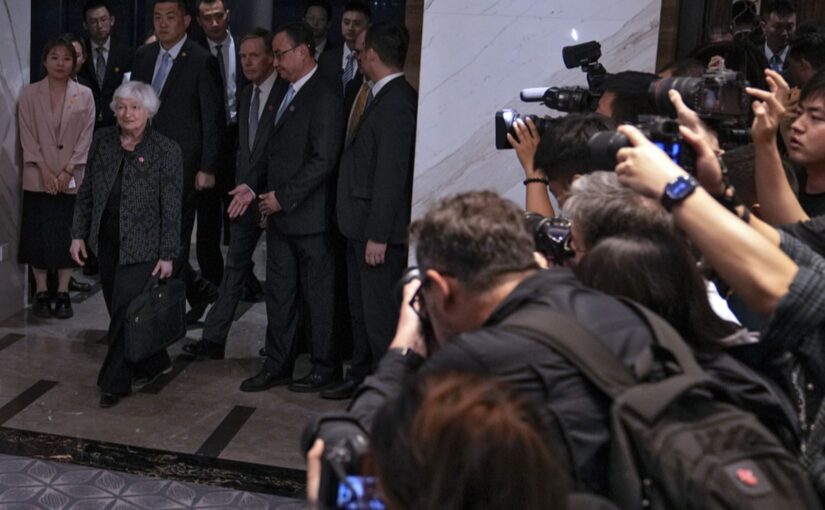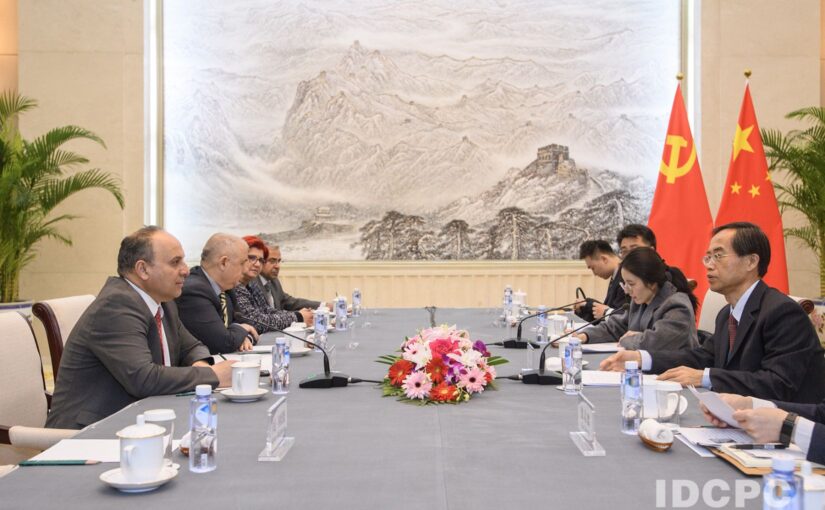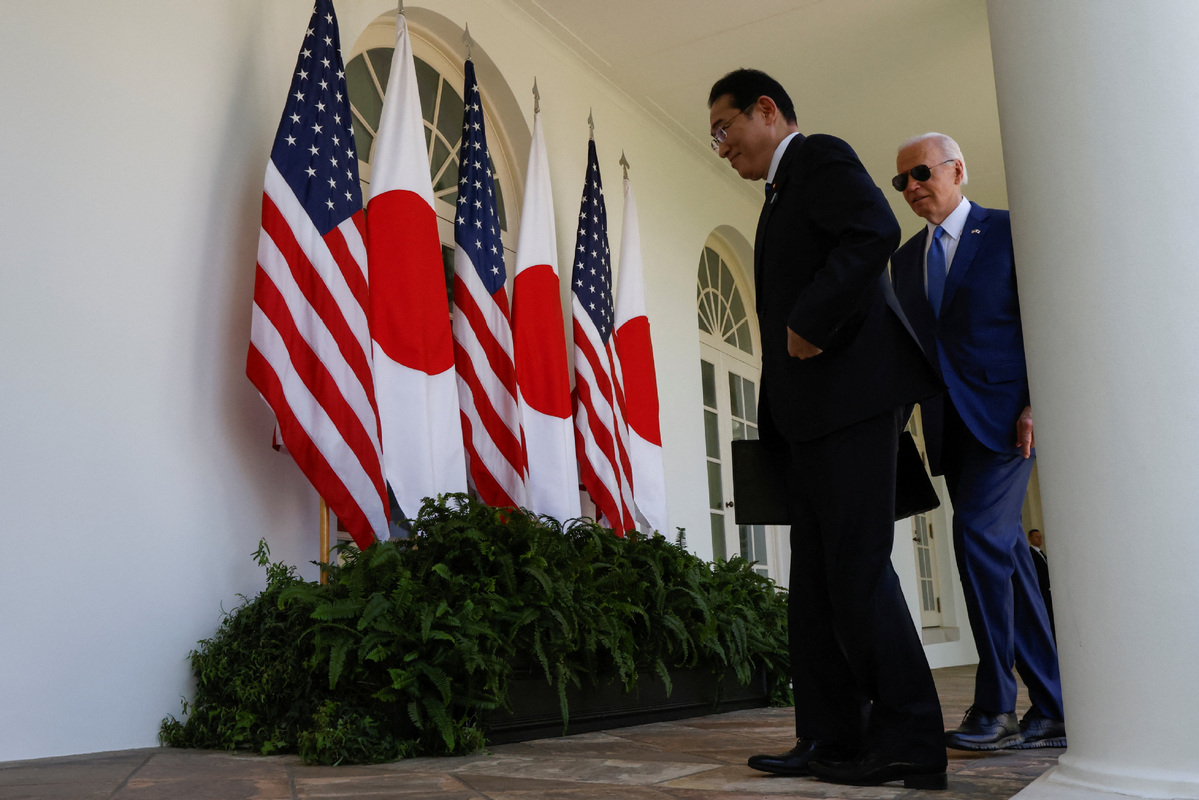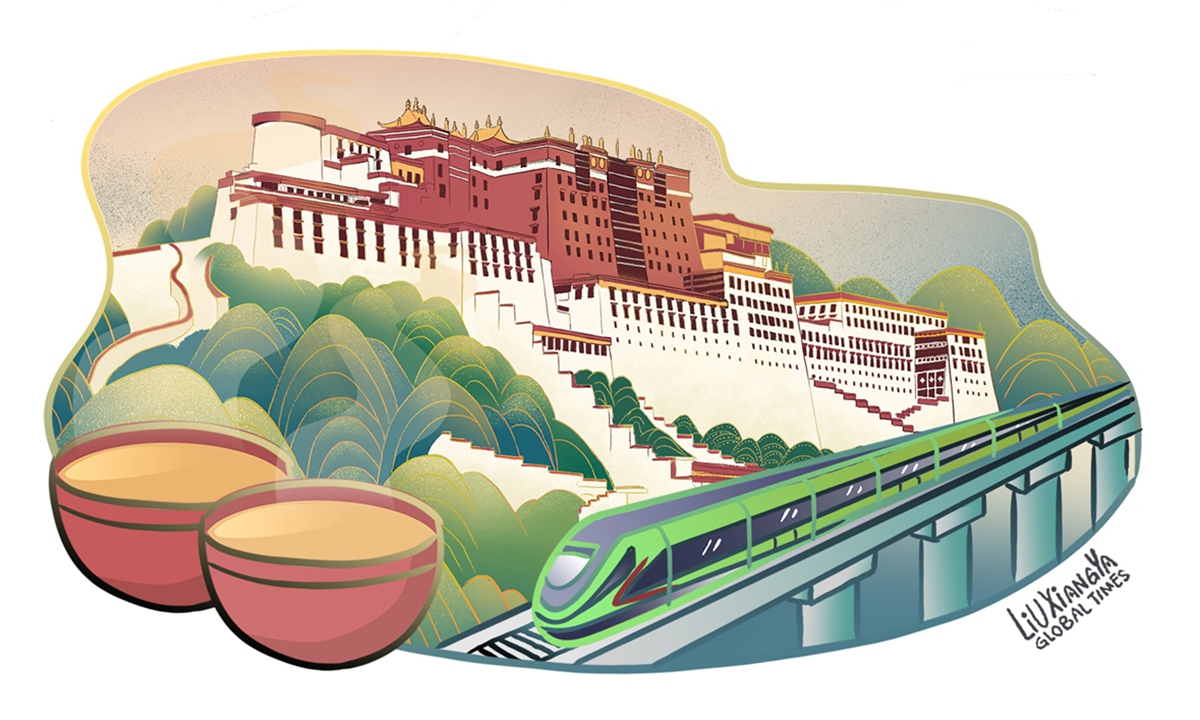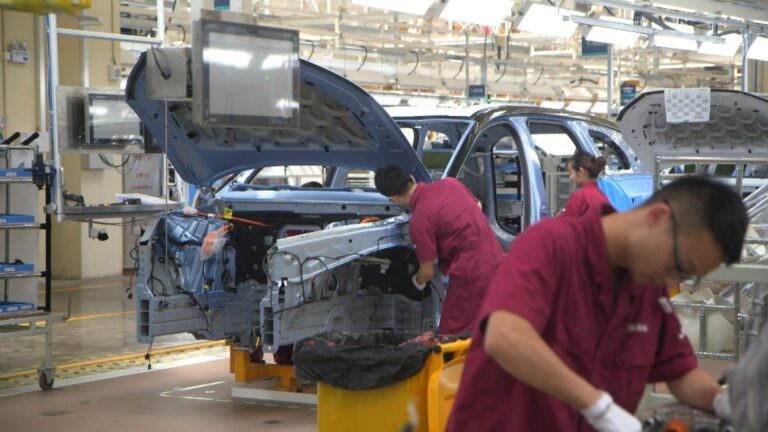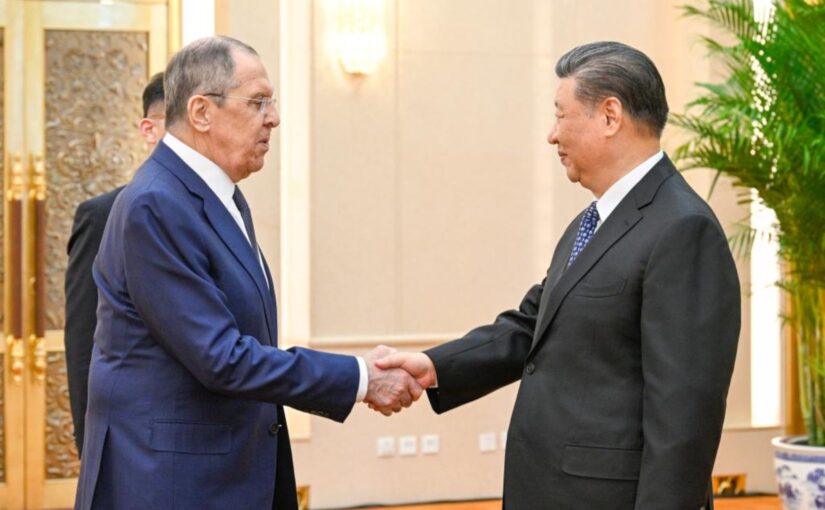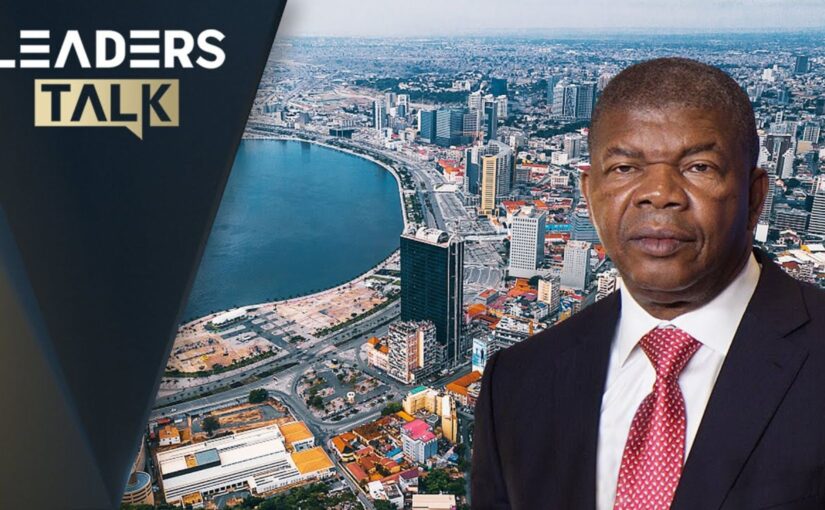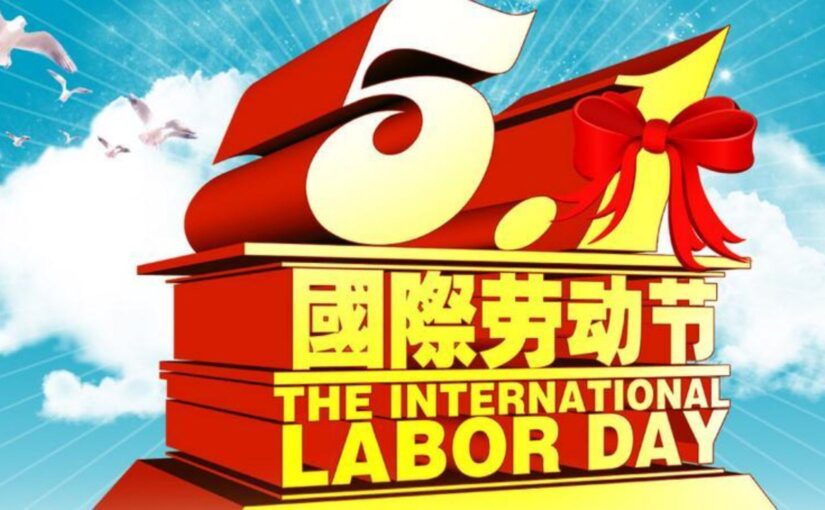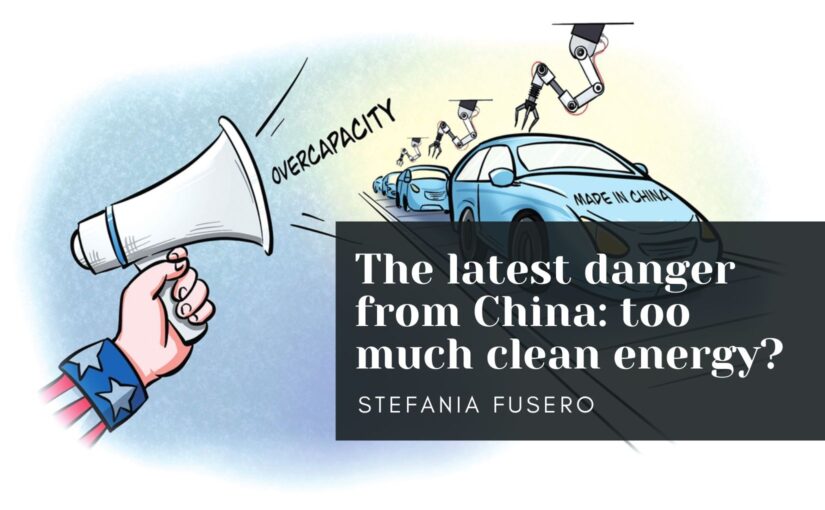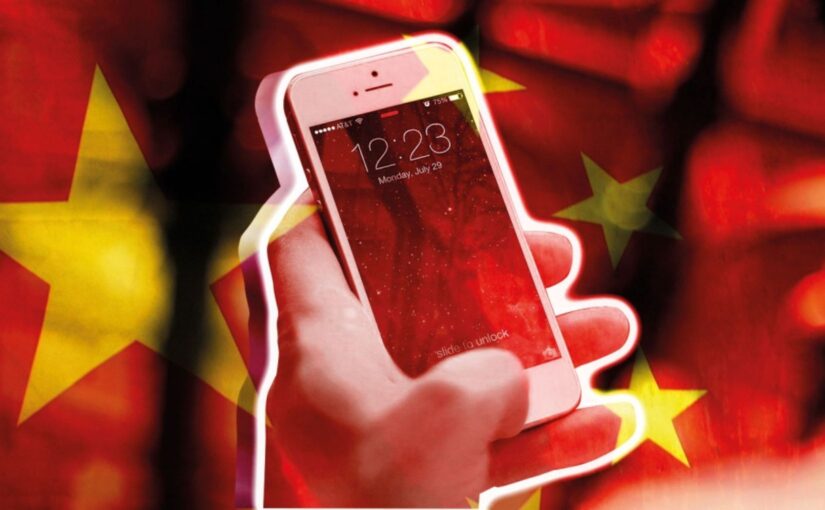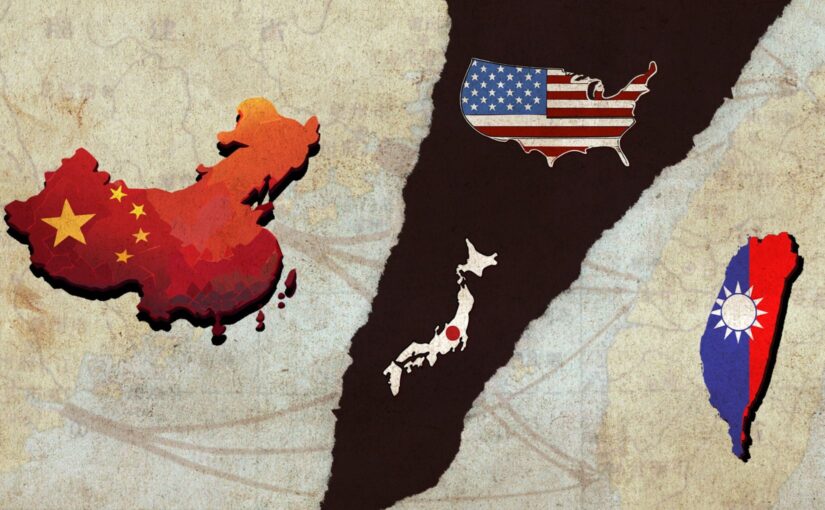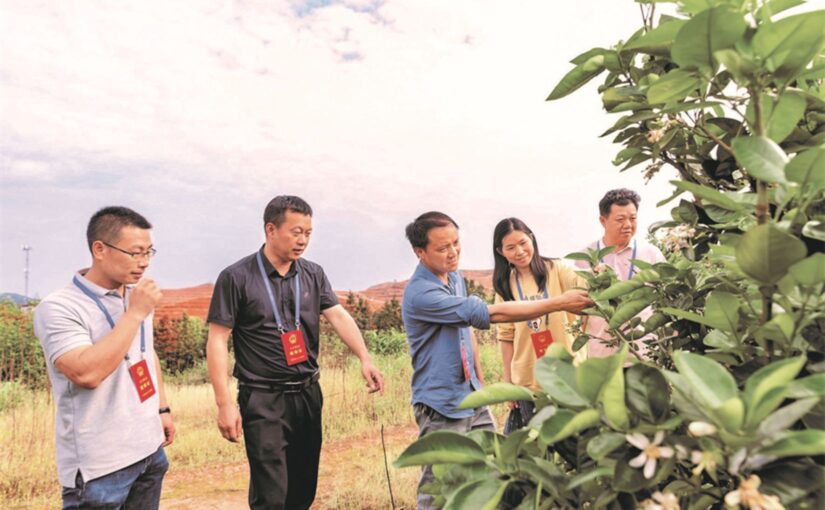 Developing Whole-Process People’s Democracy and ensuring the people run the country
Developing Whole-Process People’s Democracy and ensuring the people run the country
The following article, which we reprint from the English language July/August 2023 edition of Qiushi, the theoretical journal of the Communist Party of China (CPC), outlines how, since the CPC’s 18th National Congress in 2012, President Xi Jinping has put forward a key concept of whole-process people’s democracy. This concept has further enriched Marxist democratic theory and represents a historic achievement and landmark in the development of democracy in China in the new era.
This, the article states, has not only advanced China’s socialist democracy, but also offered Chinese insights and solutions for other countries as they explore and develop paths of democracy suited to their own conditions.
The article notes that: “President Xi has also creatively put forward a framework for judging whether a country is democratic or not: ‘The key factor in deciding whether a country is democratic or not is whether the people truly run the country. We must evaluate whether the people have the right to vote, and more importantly, the right to participate; what promises they are given during elections, and more importantly, how many of these promises are delivered after elections; what kind of political procedures and rules are set through state systems and laws, and more importantly, whether these systems and laws are truly enforced; and whether the rules and procedures for the exercise of power are democratic, and more importantly, whether the exercise of power is genuinely subject to public oversight and checks.’”
It further explains that:
President Xi has summarised the CPC’s adherence to and development of people’s democracy in five basic points.
First, people’s democracy is the life of socialism; without democracy, there would be no socialism, socialist modernisation, or national rejuvenation.
Second, the running of the country by the people is the essence and heart of socialist democracy. The very purpose of developing socialist democracy is to give full expression to the will of the people, protect their rights and interests, spark their creativity, and provide a system of institutions to ensure that it is they who run the country.
Third, the Chinese socialist path of political advancement is the right path, as it conforms to China’s national conditions and guarantees the position of the people as the masters of the country. It is the logical outcome of history, theory, and practice based on the endeavours of the Chinese people in modern times. It is a requisite for maintaining the nature of the Party and fulfilling its fundamental purpose.
Fourth, China’s socialist democracy takes two important forms: one in which the people exercise their rights by means of elections and voting, and another in which people from all walks of life are consulted extensively in order to reach the widest possible consensus on matters of common concern before major decisions are made. Together these make up the institutional features and strengths of China’s socialist democracy.
Fifth, the key to developing China’s socialist democracy is to fully leverage its features and strengths. As we continue to advance socialist democracy with well-defined institutions, standards, and procedures, we can provide better institutional safeguards for our Party and country’s prosperity and long-term stability.
These five basic points systematically encapsulate the essence of socialist democracy. They enrich and expand the political, theoretical, and practical significance of socialist democracy and set the goals, direction, and approach for developing whole-process people’s democracy.
Since the 18th National Congress of the Communist Party of China (CPC) held in 2012, President Xi Jinping has comprehensively reviewed achievements and experiences in building China’s socialist democracy, deepened understanding of the laws governing the development of democracy, and put forward a key concept of whole-process people’s democracy. This concept has further enriched Marxist democratic theory and represents a historic achievement and landmark in the development of democracy in China in the new era.
I. President Xi Jinping’s original theoretical achievement in the area of socialist democracy
Whole-process people’s democracy is a new form of political advancement developed by the people under the leadership of the Party. Its essence is the principle of the people running the country. In November 2019, during his visit to Hongqiao Subdistrict in Shanghai, President Xi first proposed that “people’s democracy is whole-process democracy.” In July 2021, at the ceremony marking the CPC’s centenary, he declared that the Party would “practice a people-centered philosophy of development and promote whole-process people’s democracy.” In October 2021, at a central conference on work related to people’s congresses, President Xi provided a comprehensive and systematic elucidation of whole-process people’s democracy. In November 2021, the Sixth Plenary Session of the 19th CPC Central Committee adopted the third resolution concerning the Party’s history, which listed “developing whole-process people’s democracy” as an important element of Xi Jinping Thought on Socialism with Chinese Characteristics for a New Era. At its 20th National Congress in October 2022, the Party set forth overarching plans for “developing whole-process people’s democracy and ensuring the people run the country.”
The efforts to propose, implement, and develop whole-process people’s democracy have clearly illustrated the CPC’s firm commitment to the position of people’s democracy and the principle of the people running the country and provided sound guidance for promoting socialist political advancement in the new era. Furthermore, they have offered Chinese insights and solutions for other countries as they explore and develop paths of democracy suited to their own conditions.
President Xi has repeatedly emphasized that there are eight criteria to evaluate whether a country’s political system is democratic and effective, specifically, “We must observe whether the succession of its leaders is orderly and law-based, whether the people can participate in the management of state, social, economic, and cultural affairs in accordance with the law, whether the public can express their needs through open channels, whether all sectors of society can effectively participate in the country’s political affairs, whether the country’s decision-making can be conducted in a rational and democratic manner, whether people of all fields can join state leadership and administrative systems by way of fair competition, whether the governing party can lead state affairs in accordance with the Constitution and the law, and whether the exercise of power is subject to effective checks and oversight.”
President Xi has also creatively put forward a framework for judging whether a country is democratic or not: “The key factor in deciding whether a country is democratic or not is whether the people truly run the country. We must evaluate whether the people have the right to vote, and more importantly, the right to participate; what promises they are given during elections, and more importantly, how many of these promises are delivered after elections; what kind of political procedures and rules are set through state systems and laws, and more importantly, whether these systems and laws are truly enforced; and whether the rules and procedures for the exercise of power are democratic, and more importantly, whether the exercise of power is genuinely subject to public oversight and checks.”
The president has also stressed that “Whether a country is democratic or not should be determined by its own people, and not a handful of outsiders.”
These important conclusions have provided well-founded answers to questions concerning democracy, debunked some of the myths about democracy, and demonstrated firm confidence in our path and system. They have effectively countered attacks and distortions directed toward China’s socialist democracy by certain Western countries. They have also bolstered the Chinese people’s confidence and resolve in upholding and developing whole-process people’s democracy and reinforced their commitment and determination to follow the Chinese socialist path of political advancement.
President Xi has summarized the CPC’s adherence to and development of people’s democracy in five basic points.
First, people’s democracy is the life of socialism; without democracy, there would be no socialism, socialist modernization, or national rejuvenation. Second, the running of the country by the people is the essence and heart of socialist democracy. The very purpose of developing socialist democracy is to give full expression to the will of the people, protect their rights and interests, spark their creativity, and provide a system of institutions to ensure that it is they who run the country. Third, the Chinese socialist path of political advancement is the right path, as it conforms to China’s national conditions and guarantees the position of the people as the masters of the country. It is the logical outcome of history, theory, and practice based on the endeavors of the Chinese people in modern times. It is a requisite for maintaining the nature of the Party and fulfilling its fundamental purpose. Fourth, China’s socialist democracy takes two important forms: one in which the people exercise their rights by means of elections and voting, and another in which people from all walks of life are consulted extensively in order to reach the widest possible consensus on matters of common concern before major decisions are made. Together these make up the institutional features and strengths of China’s socialist democracy. Fifth, the key to developing China’s socialist democracy is to fully leverage its features and strengths. As we continue to advance socialist democracy with well-defined institutions, standards, and procedures, we can provide better institutional safeguards for our Party and country’s prosperity and long-term stability.
These five basic points systematically encapsulate the essence of socialist democracy. They enrich and expand the political, theoretical, and practical significance of socialist democracy and set the goals, direction, and approach for developing whole-process people’s democracy.
II. An embodiment of the rich essence, characteristics, strengths, and practical requirements of socialist democracy
Whole-process people’s democracy is deeply rooted in Chinese society and well-suited to China’s national conditions and realities. It has garnered unanimous support from the Chinese people. It was the people who decided that China should develop whole-process people’s democracy and improve the institutions and systems by which the people run the country. This was an inevitable choice given China’s national conditions and realities and the result of long-term development, gradual improvement, and internally driven evolution based on China’s history, cultural traditions, and economic and social development. The reason why whole-process people’s democracy truly works is that it has grown out of the soil of Chinese society. To continue thriving in the future, it must remain deeply rooted in this soil.
The main actors in whole-process people’s democracy are the people, and the ultimate goal is to ensure that the people run the country. The development of whole-process people’s democracy embodies the Party’s ideals, convictions, fundamental stand, and founding mission. It embodies the CPC’s fundamental purpose of wholeheartedly serving the people and the constitutional principle that all power in China belongs to the people. The CPC leads the people in developing whole-process people’s democracy in order to provide support and guarantees for the people running the country. It ensures that our more than 1.4 billion people can exercise state power through democratic systems and channels at all levels and in all fields to realize their aspirations for a better life.
China’s various systems are designed and built around the principle of the people running the country, with the entire national governance system revolving around this tenet. In terms of institutional procedures, the principle of the people running the country is reflected in China’s form of state, form of government, and the series of basic political systems it has instituted. As a result, a comprehensive and well-integrated system for ensuring the people run the country has taken shape, and diverse, smooth, and orderly democratic channels have been established. The basic elements of these institutional procedures are enshrined in both the CPC’s Constitution and the state Constitution and laws, thus providing a robust institutional guarantee for the development of whole-process people’s democracy. To ensure complete participation in practice, this principle is applied in all areas and at every stage of the democratic process, including elections, consultations, decision-making, management, and supervision, all of which are conducted in strict accordance with the law. In accordance with legal provisions, the people also manage state, economic, cultural, and social affairs through various means and forms, thus the principle of the people running the country is realized in an extensive and multilayered manner.
Whole-process people’s democracy functions extraordinarily well and offers notable advantages. In China, people not only enjoy the right to vote but also the right to extensive participation. They not only express their will but also see it effectively fulfilled. They not only promote national development but also share in its gains.
Whole-process people’s democracy spans all links in the democratic chain from elections and consultation to decision-making, management, and supervision. It permeates all spheres of political and social life and encompasses all initiatives and efforts toward economic, political, cultural, social, and ecological advancement. China, the world’s largest developing country, covering a territory of 9.6 million square kilometers, with more than 1.4 billion people comprising 56 ethnic groups, has created an extensive, authentic, and effective democratic system. This has facilitated broad and sustained participation from the vast majority of people and helped develop a vibrant, stable, and united political atmosphere.
It is important to define the objectives, trajectory, and key tasks for the development of whole-process people’s democracy. On the new journey before us, we must unswervingly follow the Chinese socialist path of political advancement and maintain the unity of Party leadership, the people running the country, and law-based governance. We must firmly grasp the values, concepts, principles, institutional procedures, tasks, and requirements of whole-process people’s democracy, continue to boost public participation in political affairs, enrich democratic forms and broaden democratic channels to develop a more extensive, complete, and robust people’s democracy. In doing so, we will form a mighty force for inspiring our people to strive in unity.
III. An important institutional vehicle for realizing whole-process people’s democracy
President Xi Jinping has pointed out, “The system of people’s congresses is an important institutional vehicle for realizing whole-process people’s democracy in China.” This statement encapsulates the theoretical and practical development of this system over the past 60-plus years and augments both the contemporary significance and practical requirements of this system.
The system of people’s congresses is not merely an important means but also the highest form through which the Chinese people run their own country
All power in China belongs to the people. The organs through which the people exercise state power are people’s congresses at all levels, which are formed through democratic elections and are accountable to the people and under their oversight. State administrative, supervisory, judicial, and procuratorial bodies are formed by, accountable to, and under the oversight of people’s congresses. All state bodies and their employees must rely on public support, maintain close contact with the people, listen to their opinions and suggestions, accept public oversight, and work hard in the people’s interests. Deputies to people’s congresses at all levels faithfully represent the interests and will of the people in exercising state power.
These are the important elements of the system of people’s congresses. They provide reliable institutional guarantees for developing whole-process people’s democracy and ensuring the people run the country.
The system of people’s congresses vigorously promotes the development of whole-process people’s democracy
Democratic principles are upheld throughout the system of people’s congresses, from elections and consultations to decision-making, management, and supervision, thus ensuring the people can exercise their democratic rights according to law.
The electoral system for people’s congresses operates on the principles of universal suffrage, equal rights, multiple candidates, direct and indirect elections, and secret ballot. These principles constitute the foundation of the system of people’s congresses. Newly elected deputies across the five levels of people’s congresses total more than 2.77 million, achieving a high degree of representativeness. Of these, about 2.62 million are deputies to county and township congresses. They were elected by more than 1 billion voters nationwide, based on one vote per person. This is an exemplification of China’s whole-process people’s democracy.
When deliberating and formulating laws and regulations, reviewing and approving plans and budgets, deciding on major issues concerning economic and social development and issues regarding the vital interests of the people, and making resolutions and decisions, people’s congresses adhere to the principle of democratic centralism. They extensively solicit opinions and conduct thorough discussions and consultations to pool wisdom and build consensus. Collective decisions are made according to the opinions of the majority to ensure sound and democratic decision-making. In accordance with the law, they also conduct oversight of state bodies and their employees, respond to public concerns, and safeguard people’s rights and interests, while consciously accepting public oversight.
The system of people’s congresses has provided robust legal guarantees for developing whole-process people’s democracy
People’s congresses and their standing committees have advanced whole-process people’s democracy and ensured that the people run the country on the basis of complete law-based governance by formulating and refining laws and regulations. The National People’s Congress (NPC) and its Standing Committee, through the exercise of state legislative power, have formulated and revised China’s Constitution to define citizens’ basic rights and obligations and stipulate that the state shall respect and protect human rights. They have formulated and amended laws and regulations to guarantee people’s political rights and regulate the methods and procedures through which people exercise their democratic rights. They have formulated and amended laws in the civil, criminal, administrative, economic, cultural, social, ecological, and environmental spheres to safeguard people’s interests, enhance their wellbeing, and ensure social fairness and justice. When formulating or amending laws and regulations such as the Legislation Law, the NPC Organic Law, and the NPC Rules of Procedure, they have adhered to the requirements of whole-process people’s democracy. Moreover, through law enforcement inspections, work report hearings, and other means, they have promoted comprehensive and effective enforcement of the Constitution and laws to ensure that people’s democratic rights and other lawful rights and interests are guaranteed.
https://socialistchina.org/2024/04/24/d ... e-country/
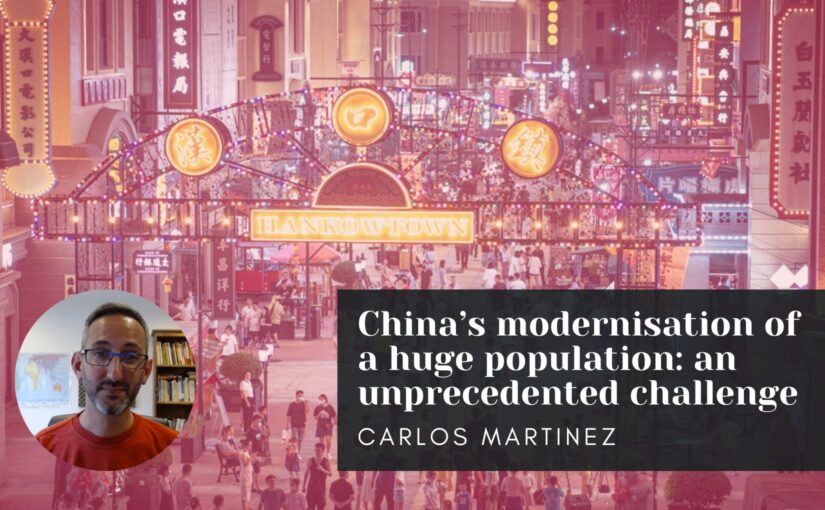 China’s modernisation of a huge population: an unprecedented challenge
China’s modernisation of a huge population: an unprecedented challenge
In the following article, an abridged version of which was published in Chinese in People’s Daily on 31 March 2024, Carlos Martinez addresses the unprecedented scale of China’s modernisation process.
Other countries have achieved modernisation, but never on the scale of China. Furthermore, the process of modernisation in North America, Western Europe and Japan was built to a significant degree on colonialism, imperialism and the oppression of the nations of the Global South.
The article asks: How can we explain China’s successes? Answering that, “above all, they are a function of China’s political system, its revolutionary history, and the leadership of the CPC” – or as Xi Jinping has put it: “Our greatest strength lies in our socialist system, which enables us to pool resources in a major mission. This is the key to our success.”
Carlos continues:
The overall trajectory of China’s economy and the top-level allocation of resources is determined by the government – led by the CPC – rather than being in the hands of a small group of people who own and deploy capital. The interests of the people always come first. This is the ‘secret ingredient’ that allows China to blaze a trail towards modernisation in a country with a huge population.
China’s successful modernisation will double the proportion of the global population living in high-income countries and will, in the words of President Xi Jinping, “completely change the international landscape and have a far-reaching impact on humanity.”
In his speech of February 2023 entitled Chinese modernisation is a sure path to building a great country and rejuvenating the nation, Comrade Xi Jinping observed that “Chinese modernisation is unprecedented in human history in terms of both scale and difficulty.”
Other countries have achieved modernisation, but never on the scale of China. Furthermore, the process of modernisation in North America, Western Europe and Japan was built to a significant degree on colonialism, imperialism and the oppression of the nations of the Global South.
The most important precursors of the West’s modernisation are colonialism, slavery and genocide: the conquest of the Americas, the settlement of Australia, the transatlantic slave trade, the colonisation of India, the rape of Africa, the Opium Wars, the theft of Hong Kong, and more. Meanwhile, Japan’s rapid rise was facilitated first by its brutal expansionist project in East Asia, and then through its adaptation to and integration with the US-led imperialist system in the post-World War 2 era.
Such a path to modernisation is not available to China, and anyway the Chinese people would never walk down that path. China’s commitment to peaceful development is well established, and is enshrined in the country’s constitution. As Foreign Minister Wang Yi has stated firmly: “On how to accomplish this modernisation of the largest scale in human history, China has given an unequivocal and steadfast answer: to unswervingly follow the path of peaceful development.”
Thus there are no precedents for the task that China has set itself. By 2035, China aims to reach a per-capita GDP on a par with that of the mid-level developed countries such as Spain or the Czech Republic; to join the ranks of the world’s most innovative countries in the realm of science and technology; to become a global leader in education, public health, culture and sport; to guarantee equitable access to basic public services; and to ensuring modern standards of living in rural areas. Furthermore, all this should be achieved whilst steadily lowering greenhouse gas emissions and protecting biodiversity, so as to restore a healthy balance between humans and the natural environment.
To achieve modernisation in a country with such an enormous country will be an incredible achievement, particularly since one of the requirements of China’s modernisation is that it should feature common prosperity; it is the modernisation of the Chinese people as a whole, not only the wealthier sections of society.
Even in a small country such as Singapore, with its population of 5.5 million, solving the problems of employment, healthcare, education, housing, childcare and elderly care is complex and difficult. China’s population is 250 times larger, and the level of complexity and difficulty is almost infinitely greater.
Impressive progress
China is still a developing country and there remains a long road to travel before the journey of modernisation can be considered complete. Nonetheless China has already made historic progress in that direction.
Life expectancy has more than doubled since the founding of the People’s Republic of China in 1949, and indeed has now surpassed that of the United States. China has achieved near-universal literacy. Everybody has access to education and healthcare. The social and economic position of women has improved beyond recognition. In purchasing power parity (PPP) terms, China is the world’s largest economy.
In late 2020, the Chinese government announced that its goal of eliminating extreme poverty by 2021 (the centenary of the founding of the Communist Party of China) had been met. To eradicate extreme poverty in a developing country of 1.4 billion people – which at the time of the founding of the People’s Republic of China in 1949 was one of the poorest countries in the world, characterised by widespread malnutrition, illiteracy, foreign domination and technological backwardness – is without doubt “the greatest anti-poverty achievement in history”, in the words of UN Secretary General Antonio Guterres.
As a result of the extraordinary efforts of the Chinese government and people, the long-held dream of eliminating extreme poverty has been achieved. In addition to having a guaranteed income level, every single person enjoys sufficient access to food, clothing, housing, clean water, modern energy, education and healthcare. No other developing country, and no other enormous country, has achieved this feat.
With the extensive infrastructure construction programs of the last two decades, China’s development has become more balanced. In the 1980s, Deng Xiaoping introduced a policy of “letting some people and some regions get rich first, in order to drive and help the backward regions.” The Eastern and Southern regions, benefitting from their coastal location, ports and access to investment, did indeed “get rich first”. But Deng also specified that “it is an obligation for the advanced regions to help the backward regions”, and recent years have witnessed the massive expansion of modern infrastructure to the Western and Central regions, following the example and benefitting from the experience of the advanced regions.
With absolute poverty eliminated, China is taking important steps towards reducing inequality and tackling relative poverty, improving per capita GDP, revitalising rural areas, and reducing inequality between regions and groups. It is time for “making the cake bigger and better and sharing it fairly”, as Foreign Ministry spokesperson Wang Wenbin has said.
This progress stands in stark contrast to the advanced capitalist countries, where neoliberal economic theory has dominated for the last four decades, and where people are experiencing an alarming rise in poverty and inequality. Rather than pursuing common prosperity, the US and its allies are drifting towards mass destitution.
China is transitioning away from high-speed growth to high-quality development based on innovation. Already China has become a global leader in telecommunications, renewable energy, artificial intelligence, nanotechnology and more. And in spite of the US’s attempts to suppress its development, China is on the cusp of being a major power in semiconductor technology.
Education is another important component of modernisation, and China has made significant strides forward in this area. Every single child receives nine years of compulsory, free education. The high school (15-18) enrolment rate now exceeds 90 percent, and the higher education enrolment rate stands at 60 percent (in Britain it is 35 percent).
The secret ingredient: socialism
How can we explain China’s successes? Above all, they are a function of China’s political system, its revolutionary history, and the leadership of the CPC.
At a meeting of the Chinese Academy of Sciences in 2016, Xi Jinping made this point very succinctly: “Our greatest strength lies in our socialist system, which enables us to pool resources in a major mission. This is the key to our success.”
Or as Deng Xiaoping famously commented in 1984: “the superiority of the socialist system is demonstrated, in the final analysis, by faster and greater development of the productive forces than under the capitalist system.”
It’s instructive to look at the example of India – the only other country with a population size similar to that of China. There are some important historical similarities between the two. India won its independence in 1947, and China won its liberation in 1949. At that time, both countries were in a parlous state, their populations enduring pervasive poverty and backwardness, ground down by centuries of feudal oppression and colonial occupation and interference.
India has made commendable progress, and yet its record of development falls way behind China’s. Its life expectancy is several years below the global average, whereas China’s is several years above the global average. Millions of children in India still don’t go to school, and its adult literacy rate is 76 percent. Hundreds of millions don’t have access to clean water or electricity. Tens of millions live in slums.
Not having had a revolution, political power in India continues to be monopolised by landlords and big capitalists. China’s political system, in which power is exercised by and on behalf of the masses, allows enormous resources to be consolidated for projects that serve the interests of the people. As such, China is able to effectively solve the problems that face all countries, particularly developing countries.
The overall trajectory of China’s economy and the top-level allocation of resources is determined by the government – led by the CPC – rather than being in the hands of a small group of people who own and deploy capital. The interests of the people always come first. This is the ‘secret ingredient’ that allows China to blaze a trail towards modernisation in a country with a huge population.
A major contribution to the world
Chinese economist Justin Yifu Lin has pointed out that, with China’s successful modernisation, “the global population of high-income nations will double, rising from 15.8 percent to 33.8 percent.” Modernisation has thus far been dominated by a small group of imperialist countries, with a combined population of 1.2 billion. China’s successful modernisation, in the words of President Xi Jinping, “will completely change the international landscape and have a far-reaching impact on humanity.”
China’s development will set an example for other countries of the Global South, and will finally put an end to the myth that there’s an equals sign between modernisation and westernisation. China will continue to share the fruits of its modernisation, via mechanisms such as the Belt and Road Initiative and the Global Development Initiative, and as such it will provide development impetus for the whole world. China’s modernisation will be a major, historic contribution to global development.
https://socialistchina.org/2024/04/22/c ... challenge/
********
China Anti-Espionage Laws Threaten Pharma Supply Chains and Multinational Manufacture in China
Posted on April 22, 2024 by Yves Smith
As the US has been seeking to check China in the chip and related tech arena by restricting restricting exports of our purportedly security/defense related products, the Chinese have not been idle. The Western press has not reported much on a series of Chinese new restrictions, under the umbrella of anti-espionage laws.
Needless to say, espionage is a show-stopper as far as threats go, as the treatment of Julian Assange, Gonzalo Lira, and detailed Wall Street Journal reporter Evan Gershkovich illustrate. No one with an operating brain cell wants to fall into the hall of mirrors of its notions of abuses and due process.
Yet despite the severity of potential punishments, and the worry among the many affected parties, there has been perilous little reporting. Reader Dr. Kevin sent a couple of links but a search on Twitter came up empty. This is particularly surprising, as we’ll discuss soon, due to the existing and soon to get worse situation for drug exports, where the US is heavily dependent on China. We long though this was a prime leverage point for China against the US, and it looks like China is staring to make use of it.
It is not clear whether the near silence by non-Chinese media on this topic is due to press reluctance to report on what sure looks like retaliation, and pretty bloody-minded at that, and potentially also some self-censorship among affected companies. Remember that during Brexit, businesses were stunningly silent about the many negative consequences of Brexit, particularly the super-hard version the Tories increasingly favored.
The limited recognition of these new Chinese policies, which have the potential to limit trade, not just various forms of regulatory and contractual compliance, is striking given that the US is continuing to escalate against China. As Politico.eu reported yesterday:
U.S. Secretary of State Antony Blinken will head to Beijing this week, with a warning for China to curb its technical support for Russia’s military — or else…
“We’re prepared to take steps when we believe necessary against firms that … severely undermine security in both Ukraine and Europe,” a State Department official told reporters ahead of Blinken’s trip. “We’ve demonstrated our willingness to do so regarding firms from a number of countries, not just China.”
An account below reports that China is expected to further tighten its anti-espionage laws this week. That may be a coincidence of timing, but it could be a warning to the US about what might happen were the US to try to deliver on Anthony Blinken’s threat mongering. But the Anglosphere media has barely registered that this is happening. Is the State Department so clueless as to be missing a potentially pretty serious message?
Due to the spotty English-language reporting, yours truly is very much in blind man and the elephant mode. So any reader corrections and fillings-in of gaps are very much welcome.
Par for the course, one of the best short-form versions of what is happening came in the comments section of one of these new stories, Pharma groups warn of supply crunch over China spying law in the Financial Times:
Martin Berg
The new data protection laws in China effectively declare company data to be of national interest, if not national property. By doing so, it has effectively taken a further step in weaponising the economy, and turning economic competition into a battle between states, rather than private enterprises.
This might answer the question that many of you likely had: what could outsourced drug manufacture have that would even rise to the level of being protectable intellectual property, let alone a state secret? As we will see soon, these compounds are either patented (nearly always in the US or EU) or off patent. Perhaps the Chinese companies have developed some better mousetraps in the form of better or faster manufacturing processes. But again, abuses in that arena would seem to fall in the realm of intellectual property theft, and not a threat to the Chinese state.
Wellie, as we are now seeing, it can be if the government takes an expansive view of what state interest amounts to.
A story today in Nikkei warns that China is tightening its espionage laws. Key sections:
China is preparing to restrict transfers of any information related to national security under an updated counterespionage law, raising fears of a stepped-up crackdown on foreign individuals and companies here.
The Standing Committee of the National People’s Congress began deliberating the changes Monday. The legislation, which will broaden the definition of espionage, is expected to pass Wednesday.
This will mark the first time since 2014 that the law has been amended.
The measure will expand the scope of the law — now limited to state secrets — to cover all documents, data, materials or items related to national security and interests. It does not provide further details on what constitutes national security and interests.
A greater focus will also be put on cybersecurity. Discussions of a system’s vulnerabilities to cyberattacks could run afoul of the new rules.
Security authorities will be granted more power, including in inspecting baggage and electronic devices of those suspected of espionage.
Notice that this plan sounds much less than what pink paper reader Martin Berg reported. Perhaps practice is already more aggressive than current law? It would seem so. Nikkei says later:
In March, a Japanese employee of drugmaker Astellas Pharma was detained for allegedly violating the existing counterespionage law. The man is believed to have had interactions with Chinese government and industry officials as part of his job.
Relevant authorities have solid evidence that the man engaged in espionage and will handle the matter in accordance with Chinese law, said Wu Jianghao, the Chinese ambassador to Japan, on April 7…
Foreign workers in China are on edge, given ambiguities about what would be considered illegal under the updated law. Activities that are part of regular business operations are seen potentially becoming an issue, and some Japanese companies have warned expatriate workers in China to be especially cautious when entering into new business deals in the technology sector, which Beijing considers a national security priority….
The proposed changes are seen giving Chinese authorities justification to monitor foreign companies involved in artificial intelligence, semiconductors and other key fields in the name of national security. This could extend to their communications with their headquarters back home.
The Nikkei story does not give a clear idea of when and how the the crackdown began, although it does say that President Xi increased his “focus” on security in recent months.
In fact, the pink paper pointed out last July that China was putting informational screws on foreign companies operating there:
Global companies are accelerating their push to decouple China data in response to the country’s increasingly stringent data and anti-espionage laws, as relations between Washington and Beijing deteriorate.
The drive for full localisation of data in China and separation of information technology systems from the rest of the world has accelerated over recent months as Beijing strengthens its control and regulation of data….
On July 1, Beijing put into effect an expanded anti-espionage law to strengthen national security. A series of raids and sanctions on US consultancies such as Bain & Company and Mintz Group, along with semiconductor giant Micron Technology, have put more pressure on companies operating in China.
Roberts said the wording in the updated anti-espionage law unveiled in April introduced the possibility of criminal sanctions and being policed by the country’s state security agency for sharing information deemed sensitive.
The revised law and the raids “have businesses scrambling to understand their current compliance footing”, he said.
In the past, western companies were concerned about taking electronic devices into the country over fears that China could access their data. Now they are equally concerned about sensitive data leaving China for fear of violating Beijing’s rules.
Now let us circle back to the new account at the Financial Times, Pharma groups warn of supply crunch over China spying law:
Western pharmaceutical groups are warning of worsening disruption to supply chains because of problems certifying manufacturing sites in China, with some factory inspectors refusing to visit the country over fears of arrest for spying and others denied entry to facilities.
China is one of the world’s largest makers of active pharmaceutical ingredients and antibiotics and a major supplier of drugs to the EU and US. However, a tightening of anti-espionage laws by Beijing has led to concerns that foreign citizens gathering data on Chinese sites could be deemed spies.
Let’s pause here. “One of the world’s largest makers of active pharmaceutical ingredients and antibiotics and a major supplier of drugs to the EU and US” understates the stranglehold China has as a meds supplier to the US. Even though the particular percentages may have shifted in the intervening years, the general picture from these archival pieces remains the same: the US is massively dependent on China for finished drugs and pharma components. The first, a 2018 post, also shows China has long been playing hide and seek with the FDA:
A recent book, China RX: Exposing the Risks of America’s Dependence on China for Medicine by Rosemary Gibson and Janardan Prasad Singh, appears not to have gotten the attention it warrants…
The big message of Gibon’s and Singh’s book is that the US relies on China for the production of active ingredients in drugs and in many cases, of the medications themselves, to the degree that we would have a public health crisis if supplies were interrupted. As Gibson said on C-SPAN:
Many people that we spoke to, both former government officials and some in industry said that if China shut the door on exports, within months, pharmacy shelves in the United States to be empty, and hospitals would cease to function.
And don’t assume generics king India would step into the breach. India gets many of the active ingredients for its pharmaceuticals from China. Gibson forecasts that China will overtake India in generics manufacture within a decade.
As Gibson explains, the US no longer makes its own penicillin, in part because China dumped penicillin in 2004, driving the last US plant out of business.
The medications where the US relies on China include heparin, a blood thinner that among other things is used for IV drips. No heparin, no IV treatments. Due to the difficulty in tracing the source of drug company ingredients, the authors could make only case by case investigations, but they China production to be critical for treatments for Alzheimer’s HIV, depression, schizophrenia, cancer, epilepsy, and high blood pressure.
Dependency is not the only risk. US drug companies shifted production to China not just to save cost but to escape regulation. The FDA has only limited access to Chinese factories, with the Chinese having well over 700, yet the FDA able to inspect only 15 a year on average. As Gibson said on C-SPAN:
The FDA is trying to get inspection on site in China. The Chinese have severely restricted the number of inspections that they will allow and the whole program has become completely ineffective.
And the Chinese are often less than cooperative. Gibson describes even then how the agency has been directed to a Potemkin facility, as in the goods were made somewhere else…and the FDA was not able to figure out where. Similarly, reports presented by the health authorities to the FDA is understood to be as reliable as Chinese economic data….Gibson again:
In 2015, the FDA inspected a plant in China. It did that because it was getting a lot of customer complaints, presumably industry complaints, about the active ingredients that they were getting from this plant. There was bacterial contamination, some of the products. They did not have full therapeutic value. If that’s an antibiotic or chemotherapy, that could be devastating.
So the FDA went in and they found what they called systemic data manipulation. This is a plant that had passed muster by the FDA, the Chinese FDA and other inspections over many years. So the FDA banned 29 different products from coming into the United States. But because the United States is so dependent, the FDA had to exempt 14 of those products from its own ban. Some of those included antibiotics or ingredients for antibiotics and ingredients for chemotherapies, because the FDA was concerned about drug shortages in the United States. That is how dependent we are as a country.
And from a 2019 post from SafeHaven that we republished:
Just like the rare earths dilemma, the U.S. healthcare industry is finding itself in a Catch 22 situation since it cannot easily cut off all drug supplies from China.
The Trade Agreements Act of 1979 requires the Defense Health Agency and other federal agencies to only use pre-approved drugs that are made in the U.S. or from a compliant country.
As you might imagine, China is not on the approved list; however, the agency has waivers for nearly 150 drugs from the country because it would not be able to procure them from anywhere else. Moreover, the TAA only covers finished products and not their components–though that’s more of a legislative issue that can probably be fixed.
Yet, quality is just one of the concerns here. China can potentially cut off actual drug supplies to the U.S. thus crippling the industry.
The article concluded by saying it would take a long time to solve this problem, as in reshore.
Now back to the Financial Times report:
…official data seen by the Financial Times shows some US Food and Drug Administration inspectors have been refused entry to Chinese production sites since the pandemic.
This has led to western pharmaceutical regulators struggling to enforce oversight of Chinese manufacturers. Drugs made in third countries and imported into the EU or US require certification by government inspectors and audits of production sites…
During the pandemic, some audits of Chinese sites were carried out online or certification was prolonged without inspection — meaning there is a large inspection backlog with many certifications due “to expire by the end of this year”, according to Fatima Bicane, manager of pharmaceutical technology at BAH.
Disruption to inspections increases the risk of Chinese production sites losing their certification for western markets, exacerbating an already strained supply chain for generic pharmaceuticals…
“Adrian van den Hoven, director-general of Medicines for Europe, an industry body representing European pharmaceutical companies, said that ambiguity around the new anti-espionage law had led to concerns that “an inspector . . . in China could be accused of espionage”….
“When you talk about antibiotics, the Chinese are in a very critical position as most of the starting materials for antibiotics are made in China,” said Jim Miller, an industry consultant who advises on pharma manufacturing in the US. “The world is very dependent on China for antibiotic ingredients and active ingredients.”
Now admittedly, the number of FDA inspections in China was more than two times higher in 2023 than 2022. But the new espionage crackdown and the detention and espionage accusation against the Japanese drug company employee has had a chilling effect on the willingness of drug industry foreign inspectors and business partners to visit China. And it’s easy to see if the final law is vague that it will allow Chinese officials to greatly toughen enforcement at any time. And that could translated into a crippling reduction of essential medicine supplies.
But the US lets its multinationals sell out our own interests and did nothing to stop them. So if worst case scenarios come to pass, we have no one but ourselves to blame.
https://www.nakedcapitalism.com/2024/04 ... china.html